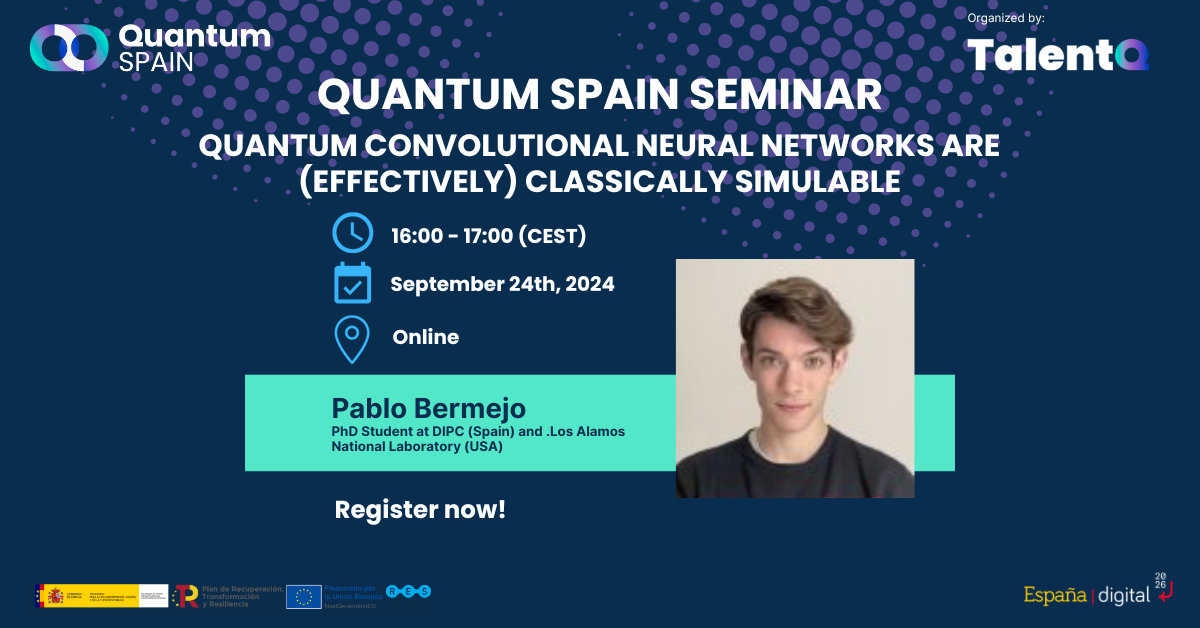
- Este evento ha pasado.
TalentQ Seminar – Pablo Bermejo

Title: Quantum Convolutional Neural Networks are (Effectively) Classically Simulable
Abstract: Quantum Convolutional Neural Networks (QCNNs) are widely regarded as a promising model for Quantum Machine Learning (QML). In this work we tie their heuristic success to two facts. First, that when randomly initialized, they can only operate on the information encoded in low-bodyness measurements of their input states. And second, that they are commonly benchmarked on «locally-easy» datasets whose states are precisely classifiable by the information encoded in these low-bodyness observables subspace. We further show that the QCNN’s action on this subspace can be efficiently classically simulated by a classical algorithm equipped with Pauli shadows on the dataset. Indeed, we present a shadow-based simulation of QCNNs on up-to 1024 qubits for phases of matter classification. Our results can then be understood as highlighting a deeper symptom of QML: Models could only be showing heuristic success because they are benchmarked on simple problems, for which their action can be classically simulated. This insight points to the fact that non-trivial datasets are a truly necessary ingredient for moving forward with QML. To finish, we discuss how our results can be extrapolated to classically simulate other architectures.
Register here: https://events.teams.microsoft.com/event/06fd2ebc-0541-4ec9-966e-8cf22ae1a680@8f0d452c-b7a4-4964-b810-8c397374477b



